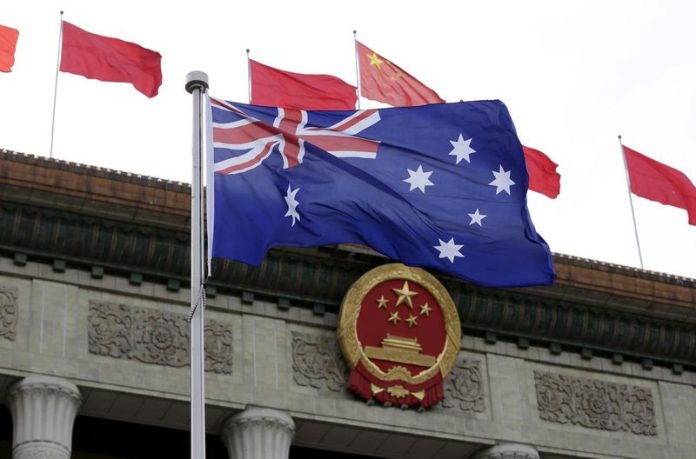
SYDNEY: Australia called Wednesday for the World Trade Organization to investigate Chinese tariffs on barley imports, turning to an “independent umpire” to adjudicate one of several bitter politically tinged disputes between the two nations.
Trade Minister Simon Birmingham denounced Beijing’s 80% surcharge on Australian barley shipments as “not underpinned by facts and evidence”, and suggested further WTO action could be in the pipeline.
“We have continued to raise our concerns with China on numerous occasions,” Birmingham said, lamenting that efforts to reach a negotiated settlement had failed.
“We now believe that calling in the independent umpire is the most appropriate course of action to resolve this dispute,” he added, admitting the process of arbitration and appeals could take years.
Australia’s barley exports to China had been worth around US$1 billion a year before a recent drought, used most notably used in brewing.
It is the first time Australia has taken legal action against China at the WTO over what commentators have dubbed “shadow trade war” between Beijing and Canberra.
On Tuesday, Prime Minister Scott Morrison said an informal ban on Australia’s multibillion-dollar coal exports, if confirmed officially, “would obviously be in breach of WTO rules”.
Beijing has rolled out a series of economic sanctions against Australian products, as diplomatic relations with Canberra have reached their lowest ebb since the deadly 1989 Tiananmen Square crackdown.
Many in Canberra believe the sanctions are punishment for Australia pushing back against Bejing’s influence, rejecting Chinese investment in sensitive areas and publicly calling for an investigation into the origins of coronavirus.
Each trade dispute has been billed as a technical issue, and in the case of barley, China argues that Australian farmers produce the grain with government subsidies and sell it below cost, so should be subject to anti-dumping duties.
Industry body GrainGrowers Australia welcomed the move to the WTO and said Chinese tariffs could cost the sector around US$1.9 billion over the next five years in lost exports.
Experts say Beijing has been considering restricting Australian barley imports since 2018 owing to worries that China — which produces only around 20% of what it needs of the crop — is overly dependent on imports.
Escalation
Australia had until now shied away from taking the disputes to the Geneva-based organisation, fearing resolution could take years, open Australia up to retaliatory claims and worsen relations further.
At least 13 Australian sectors have been subjected to Chinese tariffs or some form of disruption, including beef, coal, copper, cotton, lobsters, sugar, timber, tourism, universities, wine, wheat and wool.
But Birmingham said: “We have a series of different actions that China has taken during the course of the year and each come with slightly different criteria for how you might respond at the WTO”.
The tensions have called into question Australia’s highly successful economic model — based on supplying the raw materials for China’s breakneck emergence as a modern economy.
China’s foreign ministry on Wednesday declined to comment on specifics, but said “the Australian government should take Chinese concerns seriously and take concrete action to correct discriminatory actions against Chinese companies”.


